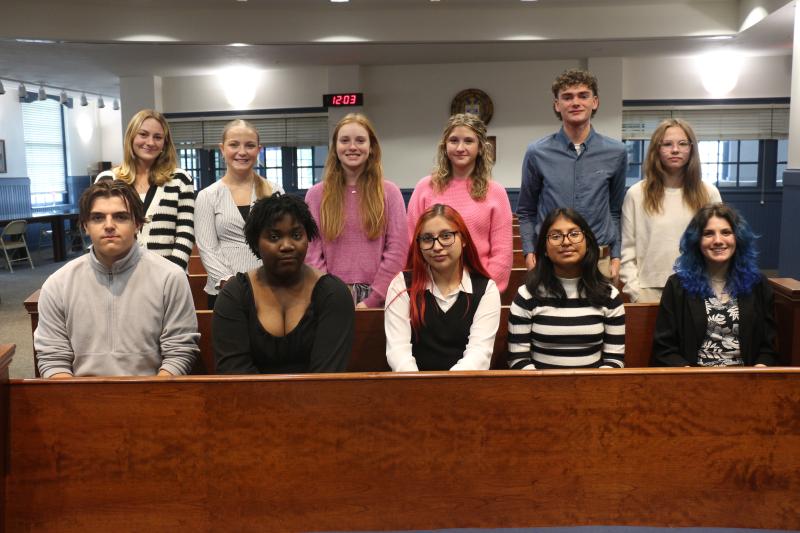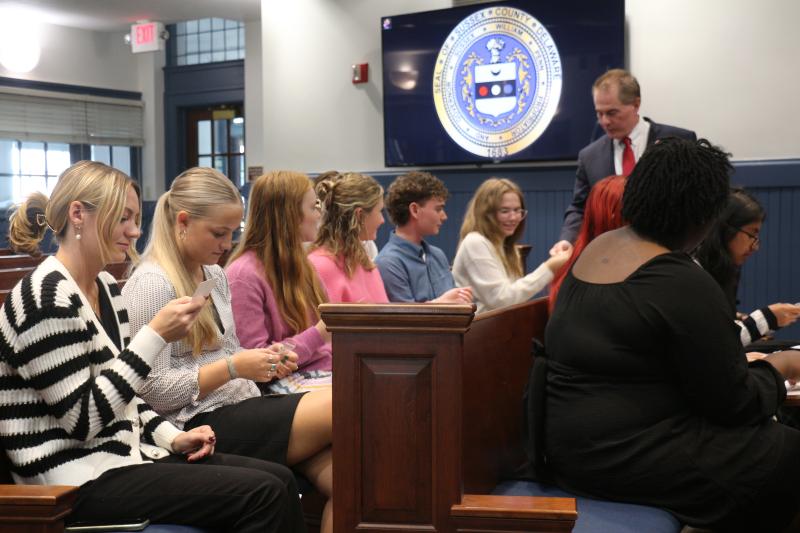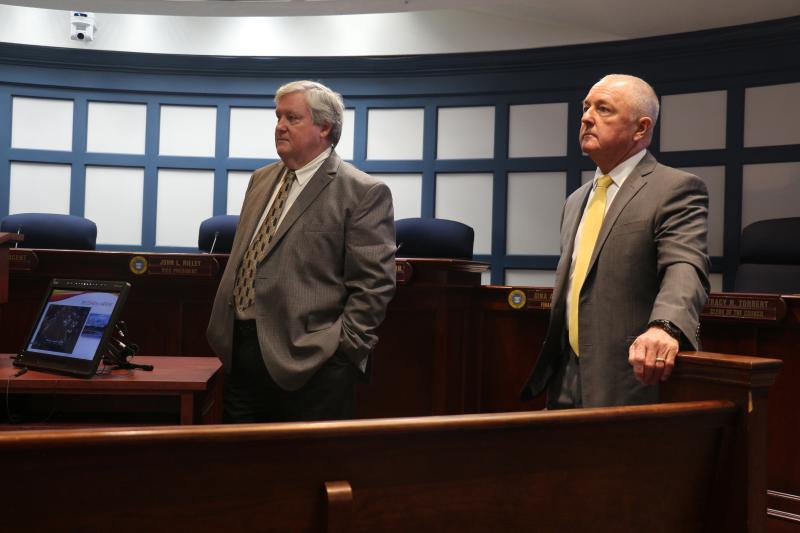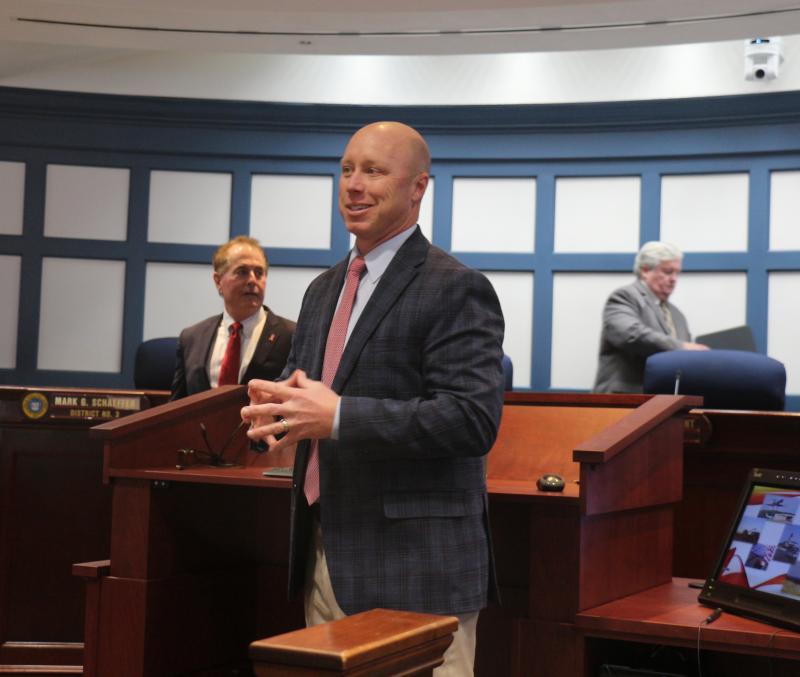Sussex County students learn about government

High school students interested in political science, government, criminology and law visited the county seat Oct. 17 to witness local government in action.
Sponsored by the Optimist Club of Sussex County, the Youth Appreciation Day trip brought students to Georgetown to meet Family Court Judge Pete Jones, Court of Common Pleas Judge Ken Clark, Sussex County Council and other officials.
Before council’s weekly meeting, students met with President Michael Vincent, Vice President John Rieley, councilmen Doug Hudson and Mark Schaeffer, County Administrator Todd Lawson, County Attorney Everett Moore and County Finance Director Gina Jennings.
Lawson told students the county is separated into five districts served by elected officials whose four-year terms are staggered so they are not up for election at the same time.
The council’s biggest decisions, Lawson said, involve land use and the budget, as their biggest fiduciary duty is taking someone’s money through taxes and figuring out how to spend it.
Lawson said he is responsible for the county’s daily operations and its 560 employees. For every dollar collected in county taxes, 55 cents are directed toward public safety, he said, which is the No. 1 service provided through funding.
In response to a student’s question, Schaeffer said representative lines are drawn every 10 years in accordance with census information, with a goal of having 48,000 residents per district.
Rieley told students that many times, local government will affect their lives more than the federal government, so it’s important to know what decisions are being made.
Hudson, who represents the southeastern corner of the county, said his district is experiencing a lot of growth.
“Growth is inevitable, but we do our best to see that it’s done right,” Hudson said.
Moore said his background is in party politics, and that he previously worked to help elect 13 people running for office in Sussex County. While interviewing potential candidates, he said he looked for how concise they are and if they mentioned service.
“I didn’t want people running for their ego or because this was the next step in their career, but worthy people that would serve the public once they got in there,” he said. “If you ever look to run for office, go there for the right reason and be of service.”
Schaeffer told students the council is a partisan body and that all current members are Republicans.
“I think, quite frankly, one of the reasons our financial condition is so good … is because of the very conservative financial leanings of this council,” Schaeffer said.
As an example, Hudson said, the county pays $4 million annually for 23 to 24 extra state troopers assigned specifically to Sussex County, saving taxpayer money. In contrast, Rieley said New Castle County has its own police department, which costs about $100 million per year.
“Public safety has to be No. 1,” Hudson said.
In response to a student question regarding the council's concerns about public safety, Vincent smiled and said he had no concerns, while Lawson cited dwindling volunteerism as a problem.
Volunteers keep fire departments and public safety running, Lawson said, and the county is concerned with maintaining services as the area continues to grow. Roads are governed by the state, while the county controls land use, Lawson said, calling it a clunky system.
A positive advantage of living in a small state is that residents have easy access to their legislators, Moore said. In fact, Hudson said, all council members’ phone numbers are listed on the county website, and people who have moved here from other areas are often surprised when he answers his own phone.





















































